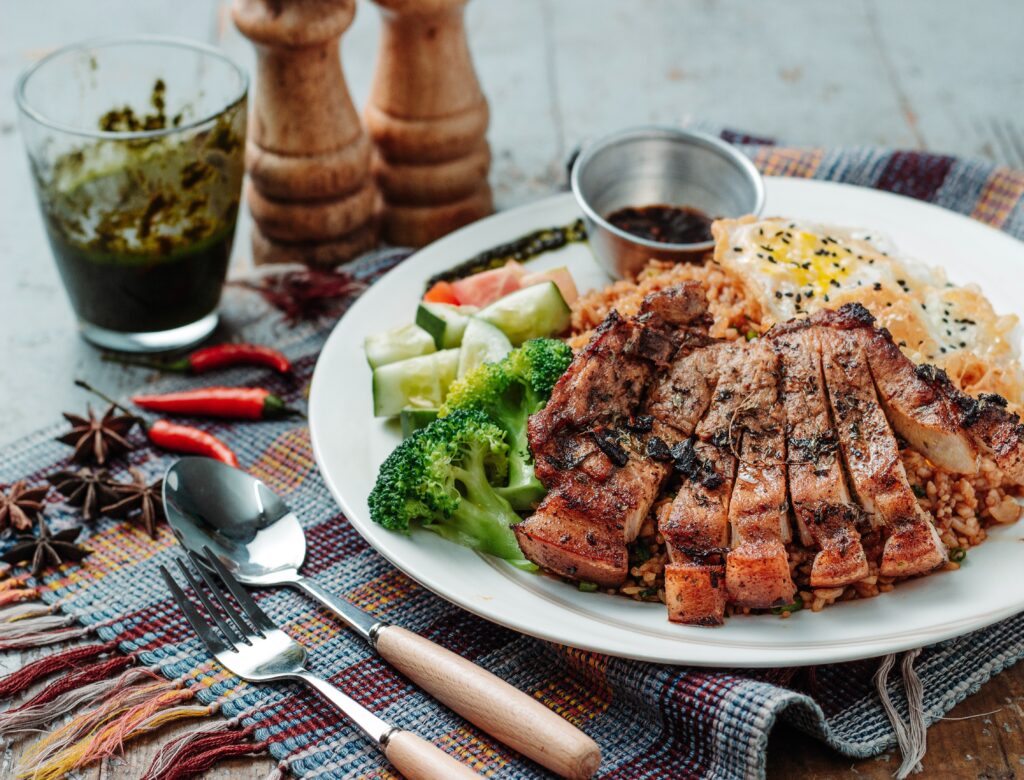Searching for food is the most primitive practice of every living being in this world. It is an instinct to fight for one’s survival against every hostile environment. As a result, the food chain is created. The contribution of human beings in this ongoing process is the most important. Even the main purpose of maintaining the balance of the food-chain process is to preserve the existence of mankind.
People are forever omnivorous in food intake. According to science, today’s Homo sapiens species has the greatest tendency to dominate among all the species of humans that existed in ancient times.
Undoubtedly, the surviving human race has not hesitated to use the sword of cruelty to wipe out its other species in order to survive. Of course, food is the root of all coups.
Bangladesh, in more detail South Asia, has a very diverse history of food. The contexts of political, economic, artistic, environmental, agricultural, etc. have changed repeatedly. Therefore, the ongoing modernity has been transformed into a tradition in a very short time. The global impact of this change, however, is undeniable. Bengalis are proud of their eating habits. Bengalis are the best at hospitality with delicious ingredients and beautiful ornamentations of their food item. The story of food-loving Bengali’s eating and offering food is quite old. This is a very primitive and proud tradition.
In Bengali patriarchal society, the responsibility of the kitchen has always been on women. In most families, a huge earthen stove could be seen to maintain their large amount of cooking for adjoining families. The artistic skill of Bengalis could also be seen in making stoves. They are three-headed, five-headed, high, low, two-holed, three-holed and many more. The main sources of fuel were wood, dried leaves, straw and dried cow dung. In the case of utensils, earthenware was also a priority. However, cassava, brass and even aluminum were seen in different festivals. In riverine Bangladesh, fish has always played an important part as a source of protein. That is why rice and fish are the Bengalis’ own resources in many places of history and tradition. In the case of vegetables, the demand could be met by the various herbs growing in the field, the crops of one’s own land and the vegetables growing in the backyard. At that time, people use to have so much spicy food. Of course, there was a reason behind this. This can be said to be a strategy for poor families to get enough curry for the rice to feed all the members of the extended family with a small amount of side dish. In that case, excess use of salt was also being seen. The preparation of ‘Bhorta’ was generated from that idea. But Bengali will be remembered for thousands of years for their story of the cowherd cows, the fish in the pond and the rice in the fields.
At a certain time, people started to be divided into small families. The food habit has been changed a bit. The large stove in the neglected kitchen turned out to be small. However, attention was paid to making the pottery sustainable. People were still accustomed to using the same firewood for cooking. To meet the shortage of protein, meat began to be a compulsory part along with fish. People could still get the home-made tastes.
With the growing population, people gradually moved to the cities for employment. Getting used to the urban environment was quite obvious then. Food habit was affected by that change. The low-income working-class family began to think about how to get more materials at a lower cost. The practice of hybrids began to meet the food needs of the overflowing population. A full box of tiffin was common for office and school hours. However, it has become regularity for people to taste restaurant food to break the monotony. Health awareness appeared among the people. They started to be conscious about adulterated food and maintain hygiene. From that time on, people started losing the green crops, the pride of the giant fresh fish and the pure milk.

After that time, concern about equality has established. Husband and wife take part in their income together, raise their child together, and make decisions together. Getting time for cooking is hard for them. In the meantime, the restaurant business has spread everywhere. People get any food they want in a short time. Besides Bengali food, people became interested in tasting the food of different countries. There was a touch of novelty at every stage of the meal. The various uses of science became clear. In the age of equality, men started taking part in the kitchen. Then people no longer use dried leaves and wood as fuel. Gas, electricity and scientific methods brought people to the smokeless kitchen. The competition goes on among the cooks to make more delicious food in less time. Later, Covid-19 taught people the use of the highest technology. The age of getting food online by sitting at home has come. It’s like summoning Aladdin’s monster and saying ‘I want this food now’, and it appears right away.
In the ever-changing lifestyle, people’s eating habits have changed several times. The search for food abundance is growing unevenly in the competition between adulterated and halal. During this time people lost their natural nutritional value and food quality. Naturally pressed rice is almost extinct under the pressure of rice mills. Life expectancy has decreased and the use of pesticides and chemical fertilizers has increased on the other hand. People suffer from various complex diseases. They are now trying to find a source of organic food. They are searching for fresh air to take a fresh deep breath. Everyone is trying to survive. Now, we only have to practice getting closer to nature. Because at the end of the day, the famous Cree Indian quote reminds us,
“When the last tree is cut down,
The last fish eaten,
And the last stream poisoned,
You will realize that,
You can’t eat money. ”






